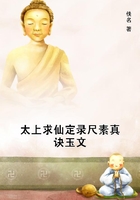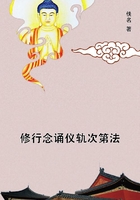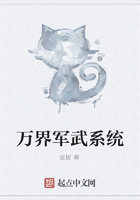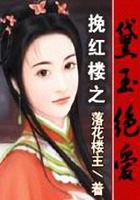SOCRATES: All of them sprang either from the love of a God for a mortal woman, or of a mortal man for a Goddess; think of the word in the old Attic, and you will see better that the name heros is only a slight alteration of Eros, from whom the heroes sprang: either this is the meaning, or, if not this, then they must have been skilful as rhetoricians and dialecticians, and able to put the question (erotan), for eirein is equivalent to legein. And therefore, as I was saying, in the Attic dialect the heroes turn out to be rhetoricians and questioners. All this is easy enough; the noble breed of heroes are a tribe of sophists and rhetors. But can you tell me why men are called anthropoi?--that is more difficult.
HERMOGENES: No, I cannot; and I would not try even if I could, because I think that you are the more likely to succeed.
SOCRATES: That is to say, you trust to the inspiration of Euthyphro.
HERMOGENES: Of course.
SOCRATES: Your faith is not vain; for at this very moment a new and ingenious thought strikes me, and, if I am not careful, before to-morrow's dawn I shall be wiser than I ought to be. Now, attend to me; and first, remember that we often put in and pull out letters in words, and give names as we please and change the accents. Take, for example, the word Dii Philos; in order to convert this from a sentence into a noun, we omit one of the iotas and sound the middle syllable grave instead of acute; as, on the other hand, letters are sometimes inserted in words instead of being omitted, and the acute takes the place of the grave.
HERMOGENES: That is true.
SOCRATES: The name anthropos, which was once a sentence, and is now a noun, appears to be a case just of this sort, for one letter, which is the alpha, has been omitted, and the acute on the last syllable has been changed to a grave.
HERMOGENES: What do you mean?
SOCRATES: I mean to say that the word 'man' implies that other animals never examine, or consider, or look up at what they see, but that man not only sees (opope) but considers and looks up at that which he sees, and hence he alone of all animals is rightly anthropos, meaning anathron a opopen.
HERMOGENES: May I ask you to examine another word about which I am curious?
SOCRATES: Certainly.
HERMOGENES: I will take that which appears to me to follow next in order.
You know the distinction of soul and body?
SOCRATES: Of course.
HERMOGENES: Let us endeavour to analyze them like the previous words.
SOCRATES: You want me first of all to examine the natural fitness of the word psuche (soul), and then of the word soma (body)?
HERMOGENES: Yes.
SOCRATES: If I am to say what occurs to me at the moment, I should imagine that those who first used the name psuche meant to express that the soul when in the body is the source of life, and gives the power of breath and revival (anapsuchon), and when this reviving power fails then the body perishes and dies, and this, if I am not mistaken, they called psyche. But please stay a moment; I fancy that I can discover something which will be more acceptable to the disciples of Euthyphro, for I am afraid that they will scorn this explanation. What do you say to another?
HERMOGENES: Let me hear.
SOCRATES: What is that which holds and carries and gives life and motion to the entire nature of the body? What else but the soul?
HERMOGENES: Just that.
SOCRATES: And do you not believe with Anaxagoras, that mind or soul is the ordering and containing principle of all things?
HERMOGENES: Yes; I do.
SOCRATES: Then you may well call that power phuseche which carries and holds nature (e phusin okei, kai ekei), and this may be refined away into psuche.
HERMOGENES: Certainly; and this derivation is, I think, more scientific than the other.
SOCRATES: It is so; but I cannot help laughing, if I am to suppose that this was the true meaning of the name.
HERMOGENES: But what shall we say of the next word?
SOCRATES: You mean soma (the body).
HERMOGENES: Yes.
SOCRATES: That may be variously interpreted; and yet more variously if a little permutation is allowed. For some say that the body is the grave (sema) of the soul which may be thought to be buried in our present life; or again the index of the soul, because the soul gives indications to (semainei) the body; probably the Orphic poets were the inventors of the name, and they were under the impression that the soul is suffering the punishment of sin, and that the body is an enclosure or prison in which the soul is incarcerated, kept safe (soma, sozetai), as the name soma implies, until the penalty is paid; according to this view, not even a letter of the word need be changed.
HERMOGENES: I think, Socrates, that we have said enough of this class of words. But have we any more explanations of the names of the Gods, like that which you were giving of Zeus? I should like to know whether any similar principle of correctness is to be applied to them.
SOCRATES: Yes, indeed, Hermogenes; and there is one excellent principle which, as men of sense, we must acknowledge,--that of the Gods we know nothing, either of their natures or of the names which they give themselves; but we are sure that the names by which they call themselves, whatever they may be, are true. And this is the best of all principles; and the next best is to say, as in prayers, that we will call them by any sort or kind of names or patronymics which they like, because we do not know of any other. That also, I think, is a very good custom, and one which I should much wish to observe. Let us, then, if you please, in the first place announce to them that we are not enquiring about them; we do not presume that we are able to do so; but we are enquiring about the meaning of men in giving them these names,--in this there can be small blame.
HERMOGENES: I think, Socrates, that you are quite right, and I would like to do as you say.
SOCRATES: Shall we begin, then, with Hestia, according to custom?
HERMOGENES: Yes, that will be very proper.
SOCRATES: What may we suppose him to have meant who gave the name Hestia?
HERMOGENES: That is another and certainly a most difficult question.














